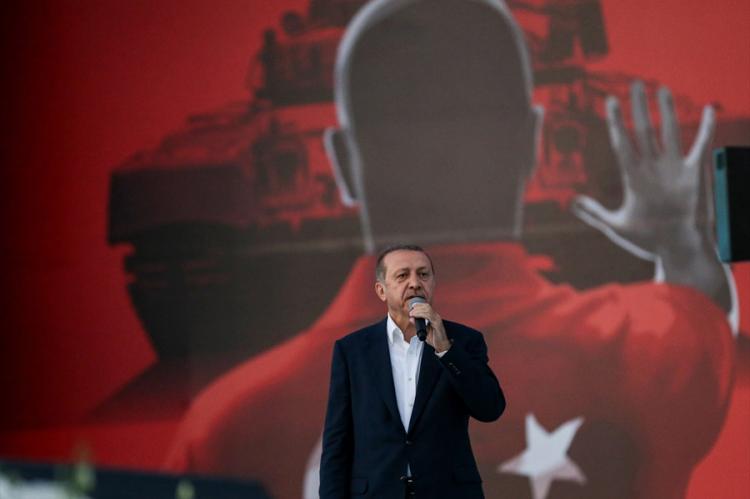Claim: Turkish president unfairly using state resources
Article in The Times reports claim that it is unfair that Turkish President Recep Tayyip Erdogan uses state resources in his referendum campaign
On 10 April 2017, The Times published an article on Turkey’s latest constitutional change referendum which will take place next Sunday, which reported the claim that Turkish President Recep Tayyip Erdogan was unfairly using state resources for his campaign for a Yes vote.
“President Erdogan is gleaning an unfair advantage in advance of an important constitutional referendum next Sunday by using state resources in his campaign and muzzling his opponents, election monitors say,” read the article.
However, the representative of the main opposition People’s Republican Party (CHP) to Turkey’s Supreme Election Council (YSK) reportedly said that since President Erdogan was the top state official who called for the referendum, silence on the election would not apply to him. Nor can he be deprived of using state resources such as the presidential state car, as opposed to the prime minister and ministers who cannot use such state resources from April 9 to April 16.
The second claim reported by the article was that President Erdogan planned “to assume executive power and sideline the parliament.” In strict contrast, however, the constitutional change bill further fortifies the parliament’s power and independence against the executive.
This can be demonstrated from various aspects but the functional superiority of the parliament’s legislations over presidential decrees might suffice as an example. The Parliament’s legislations restrict or annul a presidential decree in five ways. The related part of Article 119 reads:
“The President can issue decrees on subjects concerning the executive. The fundamental rights, personal rights and duties in the first and second divisions, and the political rights and duties in the fourth division of the second section of the Constitution cannot be regulated by Presidential decrees. The President cannot issue decrees on issues that the Constitution says will be specifically regulated in code. Issues which are conspicuously regulated by code are exempt from Presidential decrees. When a code and a Presidential decree have different prescriptions, that of the code applies. A Presidential decree is annulled when the parliament issues a code on the same subject as the decree.”
For more information on how the proposed governance system of Turkey empowers the parliament against the executive, please click here.
The third claim of the article was that around 100,000 people attended a rally in Istanbul’s Yenikapi square on 8 April 2017. But the author did not mention any sources to confirm the alleged number she presented.
“Despite the free buses and ferries laid on to bring supporters from Istanbul’s conservative outer suburbs to the rally, the turnout was low — closer to 100,000 than the two million that state media said were expected,” the author wrote.
The Yenikapi rally field was designed for the gathering of roughly 3.5 million people, according to Turkish state news portal TRT Haber. The Democracy and Martyrs Rallyheld last year was estimated to comprise 3 to 5 million people. Even staunch opposition newspaper Birgun’s estimation was around 1.5 million.
Presidential sources told Fact-Checking Turkey that the actual number of the latest rally in the field was 1.8 million and other estimations varied between one and two million as well. Moreover, given the similarity between the pictures of the crowds of the last year’s and today’s rallies, it is safe to say that the crowd number far exceeded 100,000.
The author’s last claim was about the process of legislation in the proposed system. “Should the new constitution be adopted, there will no longer be a prime minister. Instead, parliament will have the job of proposing laws, and the president alone will sign them off,” she argued.
As a matter of fact, the Turkish Constitution stipulates that the president already signs off the laws passed by the parliament within 15 days or vetoes them accordingly. But the difference between the current and the proposed systems is that in the former the president can veto a law only for once while in the latter this limitation on the president’s right to veto will be lifted.
The purpose of this regulation, introduced as part of the checks and balances mechanism of the proposed system, is to hinder the legislature from paralyzing the executive by continuously making laws that trespass on the executive realm, thereby nullifying presidential decrees. For a detailed fact-check of the checks and balances suggested by the constitutional change, please click here.





